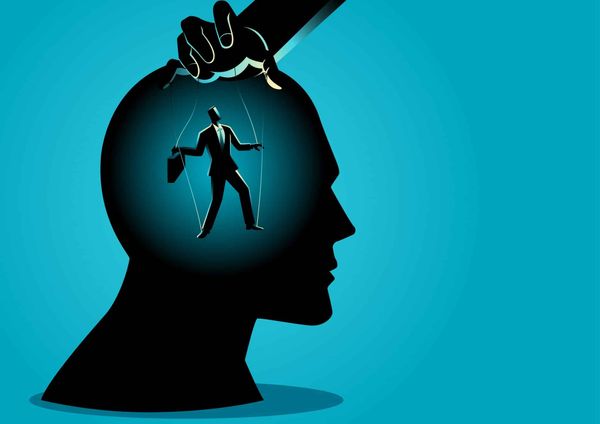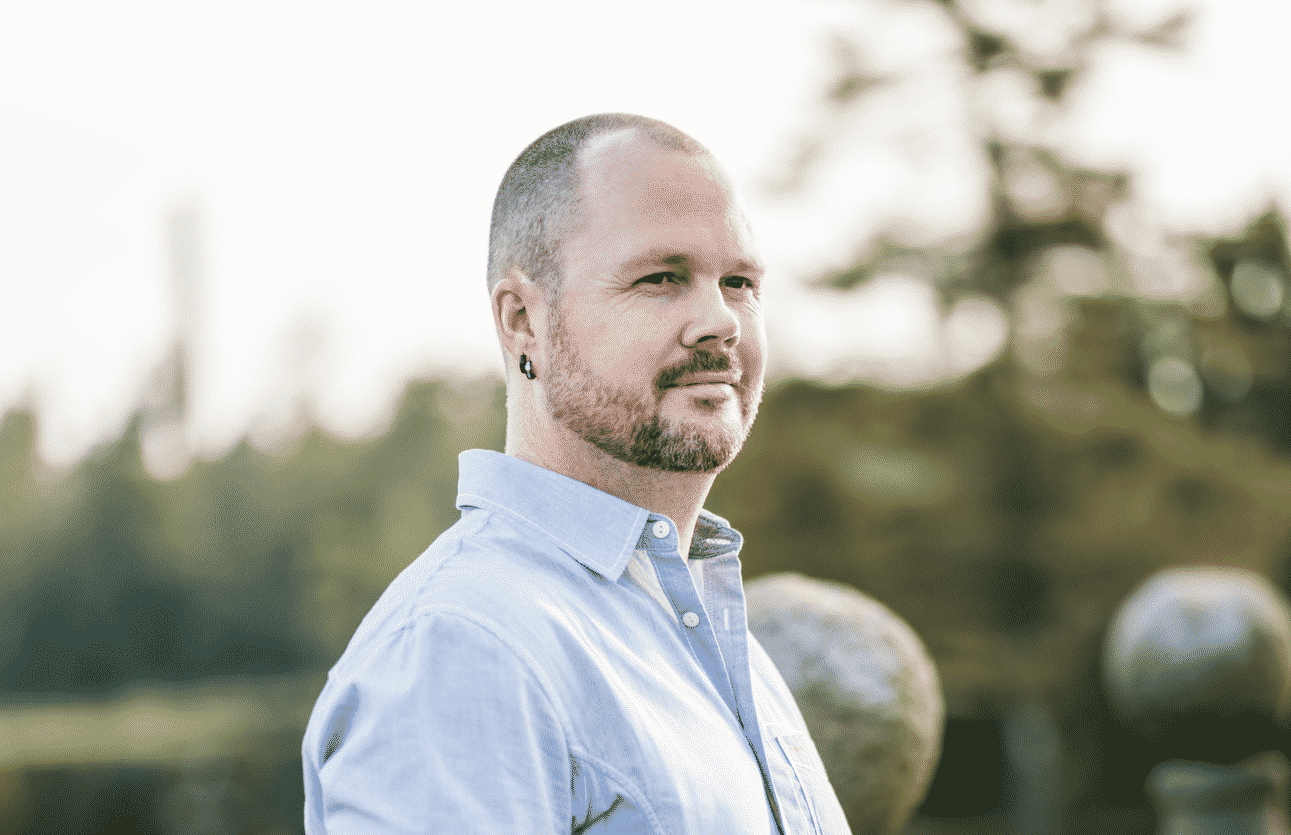Jordan Bates • • 19 min read
Jordan Hall Explains Why Humanity Might be on the Verge of Global Collapse

Is it really possible that humanity could witness a global collapse of civilization and even become extinct, due to mounting ecological crises, god-like technological power, and bad decision-making?
For Jordan Hall, it’s not only possible, it’s the most probable outcome.
Hall believes humanity is in the midst of a world-historical transition that is likely to end in mass extinction.
He also thinks that if we can make it through, we just might create a truly amazing Star-Trek-level future.
Getting through this transition, though, is going to be very difficult. Most notably, it’s going to require “a significant upgrade of our individual and collective capacity for thought and action.”
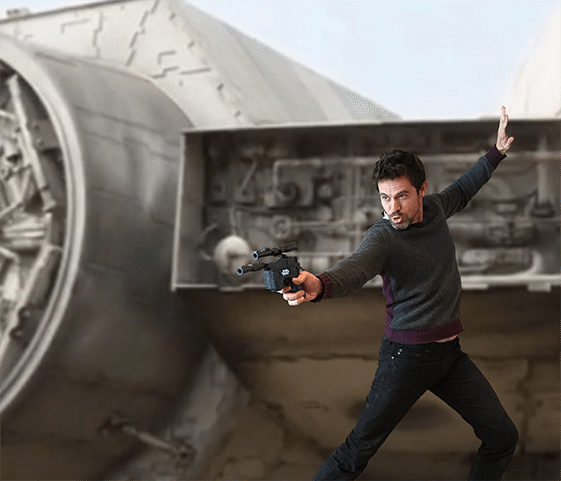
In pursuit of upgrading humanity’s collective capacity, Jordan Hall (formerly Jordan Greenhall) has been building disruptive technology companies for 17 years and co-founded Neurohacker Collective, an organization with the following mission:
“Our mission is to use the best of what we know about how the brain and mind work from all fields and disciplines in the service of realizing humanity’s deepest potentials as a species, starting with the self and moving outward.”
With this aim in mind, the folks at Neurohacker developed Qualia, a nootropic designed to act as “advanced mental nutrition to immediately enhance focus, energy, and mood while supporting long term brain health.”
Serendipitously, we recently interviewed Daniel Schmachtenberger, one of the other founders of Neurohacker and a visionary thinker on a wide range of topics related to the future of humanity and the biosphere.
Schmachtenberger is one of the individuals I’m paying the most attention to at the moment in my ongoing efforts to understand our global situation and how we can survive, thrive, and create a better world for all sentient life in the 21st century and beyond. I intend to write more on Schmachtenberger in the near future, but for now I can heartily recommend our interview with him, as well as these spectacular interviews (#1 / #2) he did with my friends Mike and Euvie, also known as the Future Thinkers.
When I found out that the Future Thinkers had recently interviewed Jordan Hall, one of Schmachtenberger’s partners at Neurohacker, I felt eager to check out what he had to say.
I was not disappointed.
It turns out that Hall, like Schmachtenberger, is an absolutely illuminating and polymathic mind. Honestly, just listening to these guys outline the broad strokes of their worldviews feels like upgrading your cognitive software. My experience listening to them reminds me of when I discovered Terence McKenna. Smart fucking dudes.
I was so impressed with the Future Thinkers’ two-part conversation with Hall (Part I / Part II) that I felt compelled to share a ~3,000-word excerpt with all of you, in hopes of sparking your interest in Hall and Schmachtenberger’s work and ideas.
Before we get into that excerpt, however, there’s a term we should quickly define: sovereignty.
Defining “Sovereignty”
Sovereignty is fundamental to Schmachtenberger and Hall’s worldviews, and they use the word in a non-traditional sense. They believe that increasing human sovereignty is something we absolutely must do, if we are to avoid extinction.
So what is sovereignty, for them?
In the most essential sense, sovereignty refers to the capacity for and demonstration of good decision-making.
Sovereignty encompasses our ability to perceive, make sense of, and take action within the world. Increasing sovereignty means doing these things in increasingly wiser and more effective ways.
If you’d like to read a more detailed definition of sovereignty, check out this short article by Schmachtenberger.
The key thing to understand is that if we don’t get a hell of a lot better at decision-making, we will go extinct. Our species is gaining technological power at an exponential rate, but we are not gaining wisdom, prudence, discernment, and other positive decision-making qualities at anywhere near the same rate.
This is a recipe for global disaster.
Hall and Schmachtenberger are far from alone in suggesting that humanity faces grave dangers and extinction-level risks at this stage of our history. In fact among experts it’s basically common knowledge that this is the case—the only disagreement is on how likely we are to destroy ourselves.
There’s a whole category of risks known as existential risks: risks likely to cripple humanity or destroy us entirely. This category includes things like nuclear wars, bio-engineered super-plagues, nanotechnology weapons, unfriendly artificial intelligence, and ecological crises caused by unsustainable human activity.
Hall believes that in order to avoid these risks we need to increase individual sovereignty while also becoming much better at self-organizing into large-scale manifestations of “collective intelligence.”
I’ll let Hall himself take it from here. In these deeply fascinating paragraphs, he outlines why humanity is facing dire challenges, why Game of Thrones is a good metaphor for our situation, and what the first step must be for anyone who wishes to contribute to solutions.
Jordan Hall on the Future of Humanity
(Again, here’s Part One and Part Two of the podcast from which this excerpt was taken; the excerpt begins at about 35:52 in Part One, if you’d prefer to listen.)
Jordan Hall: Every minute of every day, everybody’s interactions with each other and with the world [are] increasingly pushing us into states where we’re making worse and worse choices.
For example, I have recently fully unplugged from social media because social media is almost completely toxic, which is to say that when I go into any social media environment I find myself decreasingly capable of making good choices and increasingly willing to make bad choices, because it has that effect. Now, this is an interesting problem because we’ve got billions of people who are now connected on social media.
And by the way I don’t just mean social media; think also broadcast media… if I read an article in the New York Times there’s a 99% chance that I’m worse off rather than better off. Books, particularly old books, by the way, are things that we can still rely on because they take so long to write and to read. They have this cool concept… that has to do with a differential time element—so books are slower than other things. And so they’ll actually present a different framework for sense-making than things that happen in real time. And by the way, that’s a good mechanism: if you’re feeling really, really demoralized, unplug from real-time information and plug into a great book from, say, the 19th century, and that will actually help you build back up capacity…
So what’s happening is the mechanism by which we collaborate right now—the tools and techniques by which our information flows; our sense-making frameworks—are really fucked up. And they’re making us emotionally less capable of responding to reality, and they’re actually breaking down our cognitive capacity as well. You just look at the choice-making and decision-making that’s happening… The United States is in the process of going insane in every direction; I mean “insane” almost like a technical term, meaning increasingly incapable of actually perceiving and responding to reality, and dropping into lower and lower levels of pragmatic sovereignty. And just like in a family, where everybody’s getting tired and cranky, people start itching for a fight. And when somebody starts pushing, because they’re just itching for a fight, that just pushes other people. So we’re just kind of eating the seed corn of civility.
Now, that’s one side. Other side: reality is getting harder to deal with. The global financial system is now a full decade into a completely delusional false sense of stability, where every single piece of it is becoming more and more fragile across the board. Ecosystems: we’re now deeply into the environment where climate change and the consequences thereof are actually having pragmatic effects: decreasing crop yields, decreasing fresh water reserves at the edges. It’s not yet so obviously catastrophic that everybody’s aware of it, but if you actually see what the sensitive locations are—say, like, Syria last year—you can see the absolute immediate consequences of those effects, and then that has a cascade effect, tapping into the fact that all the most fragile nation-states—the ones that have the highest degree of fragility and tension and lowest reserves—are now beginning to fail, and they’re externalizing their own instability into the environment around them, which creates increasing tension on the other environments. So, for example, the flow of refugees out of Syria are now impacting, say, France and Italy, which are themselves already going through like three different levels of challenge: economic, demographic, their own internal cultural dissonance, the impact of social media and technology on underlying frameworks… all these different variables are playing back on each other.
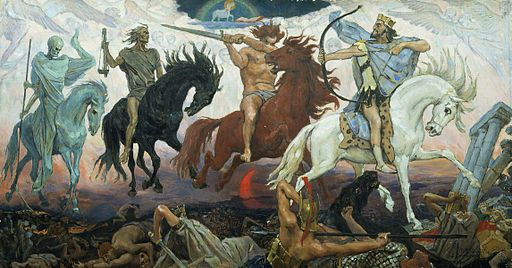
And so, net net, what we have is basically two distinct forces that are happening simultaneously. On the one hand, our individual collective capacities to make good choices in the world are decreasing because the tools that we have are actually pushing us in a negative direction. And on the other hand, the stuff we have to deal with is getting more and more present, and more and more urgent, and more and more intense. So this is going to lead us into a situation where we’re going to make extremely bad choices because we’re using bad heuristics. And I’ll give you a concrete example—and by the way this is not just a purely theoretical example. The United States right now is in a classic scenario where good strategies from the past thousand years would say that we’re facing a choice between significant civil unrest—which, in principle, could very easily transition into some kind of civil war, although we don’t know exactly what that would look like, you know, things don’t ever look the same over and over again—but, very significant civil unrest… which, traditionally, the Machiavellian response to that is: Pick some sort of Other outside, of adequate threat. Pick a fight with them so as to generate coherence internally. All right, we’re all familiar with that basic approach…
So if I’m sitting in charge of maintaining the integrity of the United States, and I watch it begin to fall apart into civil unrest and increasingly accelerate toward something which smacks a lot like civil war, I might choose to say, okay, I’m going to pick a fight with somebody of adequate threat—and I don’t think North Korea is enough—that would cause the people inside to say oh boy, this is a real shit… we have to put our differences to the side and rally around the flag, so as to protect ourselves from the external threat. Or at least give me the ability to impose the level of internal discipline—sometimes known as martial law—to just quash civil dissent internally. Now, that playbook has been played from for thousands of years. I’m not making that up, and it’s not magic. Lots and lots of people understand that both intuitively and consciously. So one, the fact [of] that tells us that it’s likely to occur. Two, I happen to know that those conversations are being had. But then three—and here’s the sneaky part—that playbook is no longer valid. The set of tools that worked—even all the way up until the late 20th century—no longer apply in our contemporary environment, so this loops us all the way back to the failure of sense-making.
If I’m a strategic decision-maker at the level of nation-states, I’ve got a sense-making model that includes the techniques that I just mentioned, that are unfortunately obsolete, but I don’t know they’re obsolete. Which means that I’m going to be making choices based upon an obsolete set of models without knowing that they’re obsolete, which means I’m making increasingly bad choices and may become increasingly confused as to why they’re bad choices. Which means then I have a choice: either I double down—I commit myself to my sense-making model and assume that my confusion is bad signal—or I accept the fact that I don’t know what’s going on and start double-checking on my sense-making model. Now, what do human beings tend to do in that scenario?
Mike Gilliland: Assume the world is crazy and they’re sane.
Jordan Hall: Yes, that is correct. And that’s not a bad choice: from an evolutionary perspective, the phrase, “Often wrong but never in doubt,” is actually a good strategy, except for when it’s not, and now is when it’s not.
Euvie Ivanova: So, is it possible to hack this kind of response and say… Let me use the example of Game of Thrones. So, there’s all these political games happening while this great ecological catastrophe, which [is symbolized by] the white walkers, is looming, threatening to destroy everything, much like, you know, the climate change is one of the biggest threats to us right now. Why can’t we all rally together? If we have to be against something, why aren’t we against that?
Jordan Hall: Well, I think you’ve hit on a couple of very interesting things. So, the first is, Game of Thrones is a really fucking good metaphor. If you think about how this sort of thing works, human beings don’t live long enough to actually be able to pass our wisdom down. Effectively, no human being alive has actually experienced a real, deep, large-scale systemic crisis. People who lived in, say, Rwanda during that Rwandan genocide experienced it in their local environment, but nobody’s actually felt a civilization-level threat because those don’t come around very often. But, our civilizations have, and we store that wisdom at the mythopoetic level. That’s why mythopoetics exists. That’s why we have big, deep stories that are shared, and they live at a level of myth, not the level of narrative.
The fact that a show like the Game of Thrones is coming up, that is telling exactly the right story at a mythopoetic level, I think is not random. I think that it is, you know, if you look at all the stories that have been circling around for the past several decades, they’re all kind of exploring this territory, and Game of Thrones has been selected for because all of us unconsciously recognize that we’re in that state. We are playing the Game of Thrones, and winter is coming. Now, winter as a metaphor actually comes with two pieces, and it’s very important to hold both, because on the one hand we have an ecological crisis, in the sense of: winter is coming down and changing the state that we’re in. But at a much deeper level is the fact that this ecological crisis is actually carrying the essence of the White Walkers, who represent death itself. I remember the last phrase from the last episode: Jon Snow: “We’re all on the same team because we’re all breathing.” Extinction is something we all have in common, but it’s very, very difficult to grasp that.
So, the problem that we’ve been seeing in the last couple of episodes of Game of Thrones is actually an excellent example of the problem that we’re running into in our civilization. How do I believe in the White Walkers? How do I believe that winter is coming? I’m living down in King’s Landing, where it’s balmy, and the present challenge is still that people want to poison me. Why would I spend a moment’s time worrying about this mythological construct of White Walkers, right? And the same thing’s happening in the world. I’m sitting in Washington D. C., where I’m engaging in survival conflict with other political operators who I’ve been ostensibly fighting with for decades. Why do I care about these sort of abstract distant threats? It’s hard for me to really grasp. Like, prove to me that the climate change is really going to have any impact that matters to me. Prove to me that asymmetric warfare is going to have an impact that matters to me.
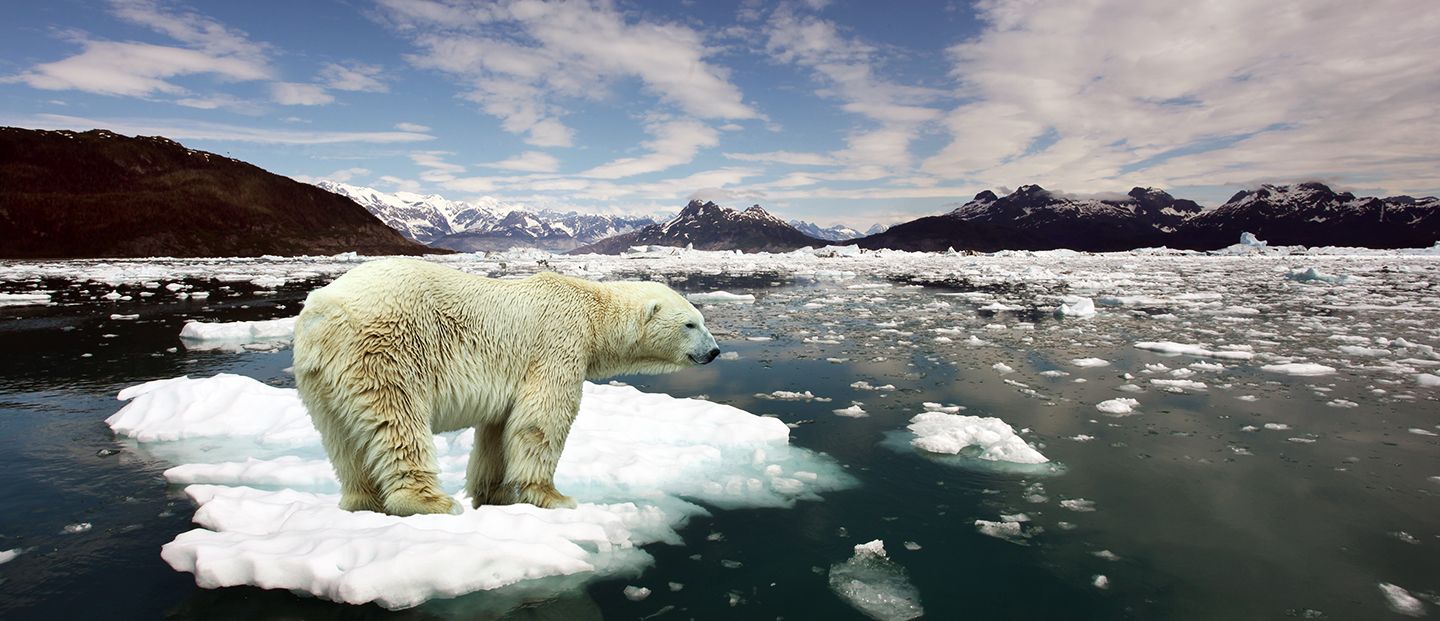
You know, we’re basically dealing with exactly the same metaphor that we talked about earlier, which is: Everything I know about how the world works and everything that I have built in my life and how to respond to the world makes me almost incapable of actually perceiving the reality in which I live, and, thereby responding to the actual fundamental threat that is coming at me. And, well, I think at this point, we just have to pause because anybody who perceives what I just said as being true, really should be extremely afraid, almost possibly to the point of catastrophic paralysis.
The reality is we’re probably all going to die. It’s very unlikely humanity has what it takes to get us through this. It’s never happened before in the past, and novel things are novel. The kinds of things that we do as human beings, unfortunately, most of them are destructive to this characteristic. Now, there may be deep mythopoetic things that it’s difficult for us to get a handle on. There may be forces at play that help us. Certainly, we as humans have weathered serious problems in the past, and we have what is necessary. Like, we are the kinds of beings that are capable of coming together and navigating very new niches. We’re vastly better prepared for this than, say, chimpanzees or elephants.
But, God damn, this is a tough one. I mean, if you can’t grasp the level of uncertainty and the level of stake and the level of individual and collective greatness that is required to have a chance, well, that’s all I can say. So, I’m actually delighted by the degree to which something like Game of Thrones is out there because it creates a nice, visceral sense. You know, the winter is upon us, and death is literally at our door. I would not be at all surprised for us to be in a situation of actual serious… people dying a lot in the next year. I would be shocked out of my mind if we didn’t see something like that in the next seven years. I’m talking about something which is vastly worse the World War II. So, we’re talking about a window, which is within the conceptual… You know, most people can grasp seven-year time horizons, and we’re in those time horizons. And every variable is pointing in that direction.
So, first step, every single human being has to take personal responsibility for maximizing their individual sovereignty and helping other people accomplish that without pulling yourself out of your own grounding. All right, so, if you see somebody who’s drowning, throw them a life preserve, but you can’t dive in because they might pull you under. Similarly, learn how to swim. Learn how to be able to really hold the magnitude of what we’re dealing with as deeply in yourself as you can, and still be able to respond every single day with the best that you can bring. And then learn how to collaborate. Learn how to get into higher and higher communion with more and more people, and that’s it. Like, that is the only possible way we have of getting out of this.
Mike Gilliland: It’s interesting—the scale of time that you’ve mentioned… Are there any concrete things in the last, say, year that have really put up red flags for you?
Jordan Hall: So, let’s just kind of… I’ll take one, just one domain because every domain has its own red flags. This domain I think is pretty visceral. So all I have to do is look at the semantics of political discourse in the West over the past year. It requires I think a nice historical sense, but if you have any historical sense at all, it’s pretty easy to see the semantics of political discourse in the West have accelerated away from wisdom, away from communication, and towards violence.
Take that down to lower and lower levels of pragmatics, and look at the way that individual human beings frame the conversation. Like, the way that a given person articulates the meaning of what’s happening anywhere. Take any event. The way that framing constrains the possibility of any form of communion occurring in either direction. Right, so, if I am in that frame, I’m not actually entering into communion. I’m actually entering into ideology. And if I’m out of that frame, there’s no possibility of me entering into that frame because now I’m ideologically positioned as being incapable of collaboration. This is happening in every dimension, in every location that I can identify, and it’s accelerating not just at the level of, sort of classical politics, like, say, what we would call your government, but in every level. So, in universities, in media, probably even in families at this point.
Mike Gilliland: So, to simplify, you’re basically saying the binary thinking, or the Us-versus-Them, good-versus-evil kind of mentality that has become so prevalent lately… is that correct?
Jordan Hall: Yeah, I’d say that’s a very denatured position of sovereignty. Like, if you’re relating to people with that set of models and responses, you’re at a very low level of sovereignty, which means that you’re part of the problem because the way that you’ll act in the world decreases the capacity for communion in the environment around you. And by the way, again in accelerating fashion, go to another one. Map what’s happening in social media. And how social media, as a construct, is separating us from sense-making. First, because of its commitment to late-stage capitalism, meaning it does not actually take responsibility for maintaining high-integrity communication and coherence, but, instead, believes that it’s completely appropriate for it to optimize for cognitive attention-hijacking and limbic-system manipulation. Does that make sense, what I just said?
Euvie Ivanova: Yep.
Jordan Hall: It’s okay for it to fuck with us and lie to us. And then secondarily, that the way that it goes about facilitating conversation is optimized for that kind of expression, so, the people who are very, very good at manipulating to us and lying to us are the most effective on this platform. And, so, it’s going in that direction as well. By the way, broadcast media is worse. I’m not saying that we should watch TV rather than go to Facebook. They’re both going to kill us. The only way to do it is direct human-to-human conversation.
A Pandora’s Box of Rabbit Holes
I sincerely hope that this excerpt piqued your interest in the work and ideas of Jordan Hall. Once more, if you’d like to listen to the entire conversation from which this excerpt was taken, here’s part one and part two of the podcast episode.
And if you feel inspired to delve deeper into the realm of understanding the potentially lethal challenges that our species faces in the 21st century, then whoa do I have a Pandora’s Box of rabbit holes for you to tumble down! Here’s a buffet of links to get you started; click on whatever catches your eye:
(Keep scrolling to read the [hopefully] stirring conclusion to this article.)
- Daniel Schmachtenberger on Why Humanity Needs to Go Through a Phase Shift
- Daniel Schmachtenberger on How We Can Avoid Extinction and Win Humanity’s Existential Game
- Jordan Hall’s ‘Situational Assessment 2018’: Analyzing American Politics Through the Lens of Collective Intelligence
- Sam Harris’ TED Talk on Artificial Intelligence Will Show You Why We Might Be Building Our Own Exterminator
- Why Humanity Must Become a Multi-Planetary Species
- Daniel Schmachtenberger: Neurohacking, Evolutionary Philosophy, and the Future of Humanity
- The Ultimate Flowchart For Determining How You Can Help the World
- Existential Risks: Analyzing Human Extinction Scenarios and Related Hazards — By Nick Bostrom
- EXISTENTIAL RISK — A Rap Album by LOSTBOYEVSKY
- Building God: Why Superintelligent A.I. Will Be the Best (or Last) Thing We Ever Do
- Altruism 2.0: How to Do 1,000 Times More Good by Donating Effectively
Conclusion: Activate Yourself, and Let’s Survive and Thrive
Understanding our situation is the first step to being able to take effective action to create solutions. As Daniel Schmachtenberger says:
“Activate yourself as an agent of sense-making.”
Your understanding matters. Your ideas matter. We can’t rely on some group of hypothetical experts to handle our species’ problems. We have to “take seriously the notion that understanding the universe is [our] responsibility,” as Terence McKenna put it.
Our minds are powerful, and with the Internet we now have the library of human knowledge and wisdom at our fingertips 24/7. There’s so much we can learn, so much we can understand. We have to stay curious. We have to be wary of arriving at final conclusions too quickly. There are always deeper levels of complexity and subtlety to traverse.
As we gain knowledge and perspective, our sovereignty increases. As we increase emotional resilience and deepen our capacity to feel and perceive the world, our sovereignty increases. As we learn to be open to all people and avoid dogmatic tribalism, our sovereignty increases.
As we grow and learn, we become better at making good decisions, and we empower others to follow suit.
Growing and learning will bring us tremendous personal benefit, but that’s not the only reason to pursue such things. We’ve reached a point in history in which the fate of our world, our species, our biosphere, hinges on our collective ability to grow, learn, get our act together, and make wise decisions.
This really does begin with you and me.
Thankfully, this doesn’t have to be some kind of masochistic grind. Learning, growing, getting better at life, and making yourself useful to others is enjoyable and a huge source of meaning.
If we can recover our innate organic curiosity (that may have been squashed by mechanistic education systems) and our innate proclivity for cultivating and applying our talents to solve problems, we can experience a kind of Eureka! moment in which we realize we actually want to spend a great deal of our lives learning and helping, because doing these things feels fucking awesome!
So in this way our self-interest can align with our collective interest, and we as individuals can self-actualize and share our gifts in the way that only we can, both for our personal and collective benefit. What could be more meaningful than using your unique gifts to coordinate with other passionate humans in order to save our species and preserve the biosphere for all life on Earth? Nothing comes to mind!
And if all of this feels really difficult and overwhelming, pause and take a deep breath. I get overwhelmed too, and it’s okay. Most people don’t go down this rabbit hole and think about this stuff because it’s emotionally burdensome to do so. You’re brave for reading this far and contemplating these heavy topics.
The good news is that you’re not alone. There are countless brilliant and talented people thinking about these things and working to contribute their small piece to this existential puzzle. None of us has any hope of doing this alone. This is why Hall stresses the need for collective intelligence.
What you can begin to do can be simple: Activate your mind. Ask questions. Dig for answers. Begin to learn. Take seriously the project of understanding where we are now, how we got here, and how we can move forward in the best way possible. Make this a lifelong pursuit. We need more people who are activated, thinking, searching, and earnestly trying to level up their understanding and their capacities. Their sovereignty.
If you’re compelled, begin to create things to express what you’re learning—art, writing, videos, podcasts, drawings, anything. This will provide others with meaning and direction and will also connect you with people who are on the same wavelength—people who will become very important to you. If you’re not drawn to create, take action in other forms: volunteer, start a project, travel, find roles that interest you.
As you do this—as you seek, learn, grapple, grow, create, question, act, and understand—paths and projects will begin to emerge organically. Your niche will become increasingly clear. Perhaps you will be a specialist or a generalist, strategist or scientist, engineer or artist. We will need all these.
We’re all in this together, brothers and sisters, ladies and gentlemen, dudes and dudettes.
We’re all upright-walking monkeys floating through space on this tiny, fragile rock, and we’ve got some pretty serious problems on our hands.
We need to use the Internet, books, and all tools and resources at our disposal to learn, understand, cooperate, and make wise and effective decisions.
We either do this, or we die.
Let’s learn like hell.
Follow Jordan Bates on Facebook and Twitter.
If you’d like to level up your understanding, emotional resilience, self-awareness, and other positive capacities, consider undertaking our self-actualization obstacle course.

Jordan Bates
Jordan Bates is a lover of God, father, leadership coach, heart healer, writer, artist, and long-time co-creator of HighExistence. — www.jordanbates.life

